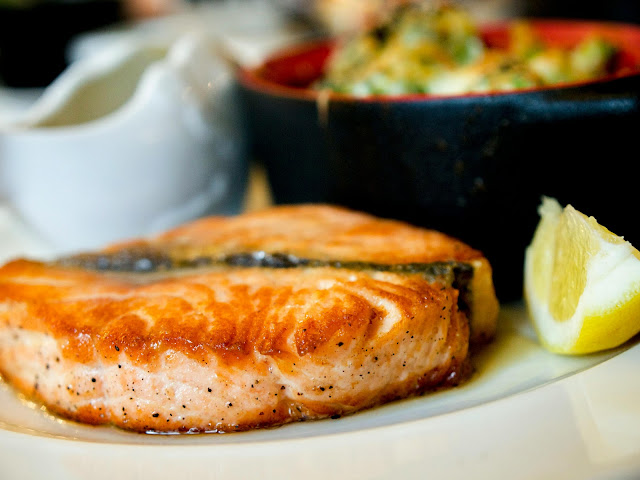Protein Power-Up: The Role of Protein in Weight Loss - How Much Do You Really Need?
"I need to lose weight, but I don't want to starve
myself." If that's something you've thought or said before, then you're
not alone. Many of us are looking for ways to lose weight without feeling
deprived. And that's where protein comes in.
Our bodies require protein as an important nutrient to construct and repair tissues, which includes muscle. But did you know that it's also crucial for weight loss? Here's why.
Protein helps you feel full
Have you ever noticed that after eating a meal high in
protein, you feel fuller for longer? That's because protein takes longer to
digest than carbohydrates and fats. It also slows down the emptying of the
stomach, which means you stay satisfied for longer. As a result, there could be
a decrease in the number of calories consumed during the day.
Protein burns calories
Protein preserves muscle mass
When we lose weight, we often lose both fat and muscle mass.
But losing muscle mass can be detrimental to our health and weight loss
efforts. Muscle tissue is metabolically active, which means it burns calories
even while we're at rest. The less muscle mass we have, the fewer calories we
burn. Eating enough protein can help preserve our muscle mass while we're
losing weight.
So, how much protein do you really need?
The suggested protein consumption per day is 0.8 grams for
every kilogram of body weight. But if you're trying to lose weight, you may
need more than that. Studies have shown that increasing protein intake to
1.2-1.6 grams per kilogram of body weight can lead to greater weight loss and
improved body composition.
However, how can you determine that your protein intake is
enough? Here are some examples of high protein foods and their protein content:
- 3 oz chicken breast: 27 grams
- 1 cup Greek yogurt: 23 grams
- 3 oz salmon: 22 grams
- 1 cup black beans: 15 grams
- 1 oz almonds: 6 grams
If you're trying to lose weight, aim to include a source of
protein at every meal and snack. And don't forget that protein supplements,
such as whey protein powder, can be a convenient and easy way to increase your
protein intake.
But can you eat too much protein?
Yes, you can. Eating excessive amounts of protein can lead
to kidney problems, dehydration, and even weight gain if you're consuming more
calories than your body needs. Therefore, maintaining a balance is crucial.
As a general rule, aim to get 25-30% of your daily calories
from protein. For example, if you're following a 1500 calorie diet, aim for
around 100-115 grams of protein per day.











